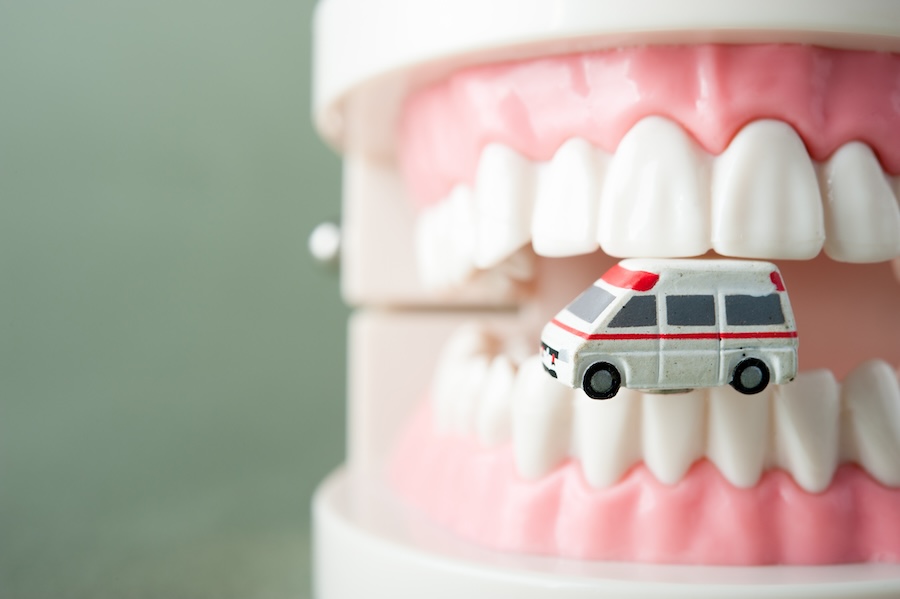
Types of Dental Emergencies and How We Can Help
May 21, 2024 9:00 amAt Edgewood Family Dentistry, we understand that dental emergencies can happen when you least expect them, causing pain and discomfort that require immediate attention. In this blog post, we’ll discuss the different types of dental emergencies you may encounter and how our emergency dentistry services can assist you and your family.
Toothaches
Toothaches can range from mild discomfort to severe pain and may be caused by various issues such as tooth decay, infection, or trauma. If you’re experiencing persistent tooth pain, it’s essential to seek prompt dental care to determine the underlying cause and prevent further complications.
Knocked-Out Teeth
Accidents or injuries can result in knocked-out teeth. This is an acute dental emergency that requires immediate attention to increase the chances of successful re-implantation. If a tooth has been knocked out, carefully rinse it with water without scrubbing, and try to reinsert it into the socket. If that’s not possible, place the tooth in a container of milk or saliva and see a dentist as soon as possible.
Cracked or Fractured Teeth
Cracks or fractures in the teeth can occur due to trauma, biting on hard objects, or untreated decay. Depending on the severity of the fracture, treatment may involve bonding, dental crowns, or root canal therapy to restore the tooth’s structure and function.
Abscesses or Infections
Dental abscesses are pockets of pus that develop due to bacterial infection and can cause severe pain, swelling, and fever. Without prompt treatment, abscesses can spread to other parts of the body and lead to serious health complications. Drainage of the abscess and antibiotic therapy are typically necessary to eliminate the infection.
Lost or Broken Dental Restorations
If a filling, crown, bridge, or other dental restoration becomes loose, lost, or damaged, it’s essential to see a dentist as soon as possible to prevent further damage to the affected tooth and surrounding structures. In some cases, temporary measures can be taken to protect the tooth until a permanent restoration can be placed.
Soft Tissue Injuries
Injuries to the gums, lips, cheeks, or tongue can result in bleeding, swelling, and discomfort. Gently clean the injured area with warm water and apply pressure to stop any bleeding. If the bleeding persists or the injury is severe, seek immediate dental care.
Comprehensive Emergency Dental Care at Edgewood Family Dentistry
At Edgewood Family Dentistry, we’re committed to providing prompt and compassionate care for all types of dental emergencies. Our experienced team is equipped to handle a wide range of dental issues and offers same-day appointments to ensure that you receive the timely treatment you need.
If you’re experiencing a dental emergency, don’t hesitate to contact our office right away. We’re here to help you find relief and restore your oral health so you can get back to smiling with confidence!
FAQs
Q: What should I do if I have a dental emergency outside of office hours?
A: Contact our office for instructions. We often provide emergency contact information or an answering service to assist you after hours.
Q: How can I prevent dental emergencies?
A: Regular dental check-ups, wearing mouthguards during sports, and avoiding hard or sticky foods can help prevent many dental emergencies.
Q: What should I bring to my emergency dental appointment?
A: Bring any dental records you have, a list of medications you’re taking, and the knocked-out tooth or broken restoration if applicable.
Q: Can I use over-the-counter pain relievers for dental pain?
A: Yes, over-the-counter pain relievers can help manage pain until you can see the dentist. Avoid aspirin if the tooth or gum is bleeding.
Q: Is a chipped tooth a dental emergency?
A: It can be, especially if it causes pain or has sharp edges that could damage your tongue or cheek. It’s best to seek dental advice promptly.
Categorised in: Dental Emergencies
